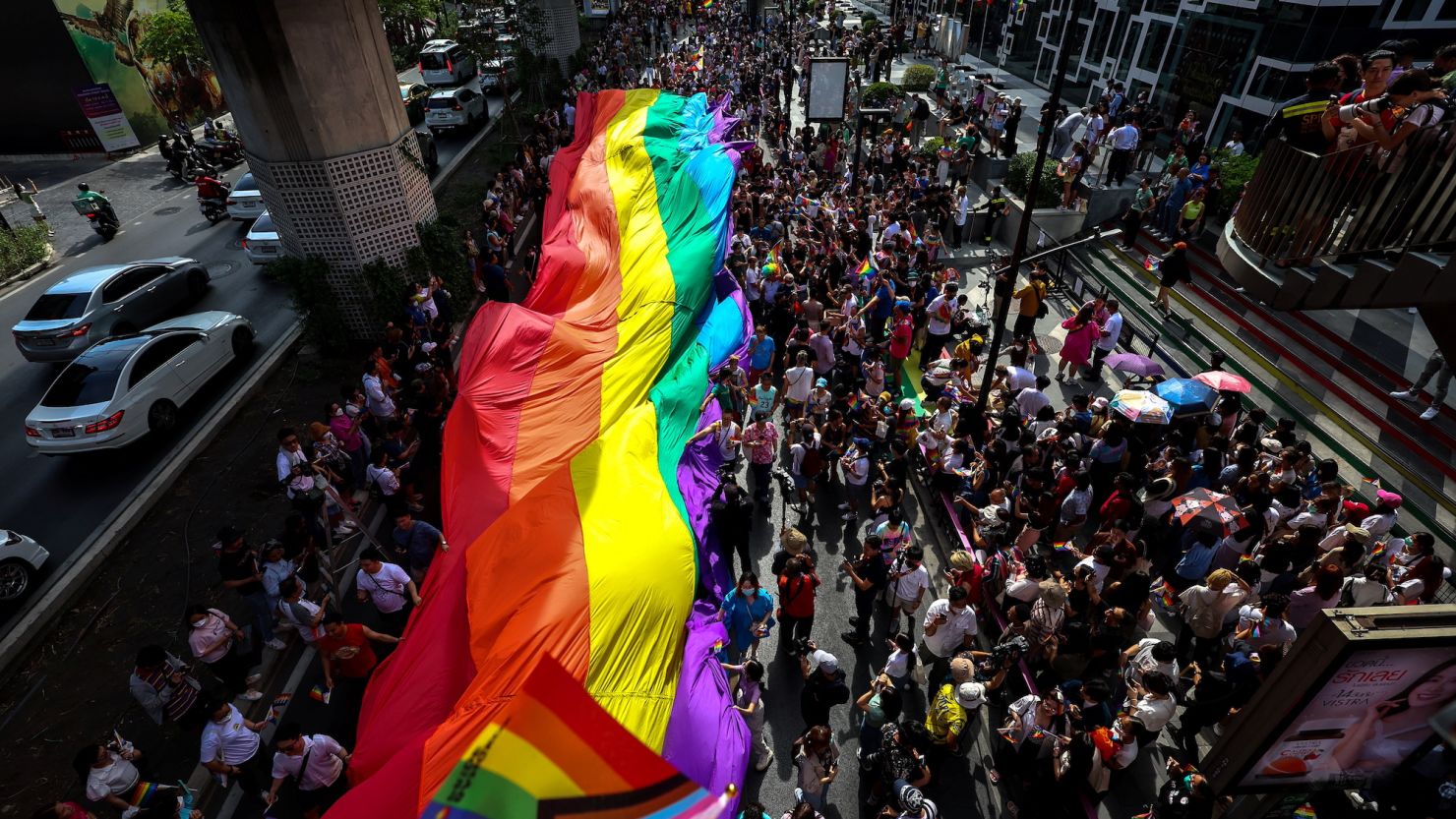Thailand’s lawmakers have achieved a significant milestone by passing legislation to officially recognize same-sex marriage, marking a historic step towards ensuring marriage rights for gay and lesbian couples in Southeast Asia.
400/500 Majority in Bill Passing
If the legislation is enacted, Thailand will become the inaugural country in Southeast Asia to officially acknowledge same-sex marriage.
The passage of the “marriage equality” bill, technically an amendment to the Civil and Commercial Code, was confirmed by the 500-member House of Representatives in a final reading on Wednesday.
Following over 3 hours of debate, an overwhelming majority of 400 lawmakers expressed their support for the legislation, while 10 opposed it, and five members either abstained or did not vote.
The bill is now slated for review by the upper-house Senate on April 2. Subsequently, it will undergo endorsement by the King and publication in the Royal Gazette.
Thailand Restores Rights. A step towards Balance
The amendments are expected to become effective 120 days after publication. Once implemented, Thailand will officially recognize marriage registrations for same-sex partners aged 18 and above, granting them various rights including inheritance, tax allowances, and child adoption.
Prime Minister Srettha Thavisin’s administration has prioritized this legislation, with advocates highlighting its potential to enhance Thailand’s reputation as an LGBTQ-friendly tourist destination.

He added, “We seek to return to them the rights that they have lost.” The groundbreaking legislation aims to redefine the composition of marriage from “a man and a woman” to “two individuals” and alter the official legal status from “husband and wife” to “married couple.”
This initiative surpasses previous efforts by Thai administrations, which focused on providing equal rights through formalizing civil partnerships but refrained from recognizing same-sex marriage.
Thailand’s Journey towards LGBTQ Rights
Thailand is poised to become the third location in Asia to acknowledge same-sex marriage, following in the footsteps of Taiwan and Nepal, aligning itself with approximately 40 countries worldwide that ensure equal marital rights.
 In Thailand, LGBTQ activists have advocated for over a decade for marriage rights equivalent to those of heterosexual couples.
In Thailand, LGBTQ activists have advocated for over a decade for marriage rights equivalent to those of heterosexual couples.
Although Thai laws have shielded LGBTQ individuals from various forms of discrimination since 2015, efforts to formalize marriage rights encountered obstacles.
In 2021, the Constitutional Court upheld the law defining marriage as exclusively between a man and a woman.
Last year, a proposal to recognize same-sex civil partnerships faltered in parliament prior to elections.
Impact on Tourism
Legalizing same-sex marriage in Thailand could have a notable impact on tourism, a sector that contributes approximately 12% to the nation’s $500 billion economy.
Prior to the pandemic, LGBTQ travel to Thailand was estimated to have generated about $6.5 billion, equating to 1.2% of the gross domestic product, according to industry consultant LGBT Capital.
The formal recognition of same-sex marriage could enhance Thailand’s reputation as one of Asia’s premier destinations for LGBTQ visitors, potentially capitalizing on the “pink economy,” noted Wittaya Luangsasipong, managing director of Siam Pride, an LGBTQ-friendly travel agency in Bangkok.
More LGBTQIA+ Steps in store: World Pride events 2028!
He expressed optimism that the move would bolster Thailand’s global standing and foster a relaxed and secure environment, attracting more LGBTQ tourists and potentially leading to an increase in LGBTQ weddings, which could benefit various industries and local communities.
Moreover, the legalization of same-sex marriage could prompt some LGBTQ couples to consider relocating to Thailand for employment opportunities, according to Luangsasipong.
The government under Prime Minister Srettha Thavisin has pledged to pursue further progressive laws, including measures to recognize gender identity and legalize prostitution.
The health ministry has also proposed legalizing commercial surrogacy to facilitate adoption by LGBTQ couples. Additionally, Thailand aims to host the WorldPride events in Bangkok in 2028.
According to Danuphorn Punnakanta of the ruling Pheu Thai Party, the marriage equality bill represents just the initial step in a series of progressive legislative actions. He anticipates that a gender identity bill will be proposed during the upcoming parliamentary session starting in July.










